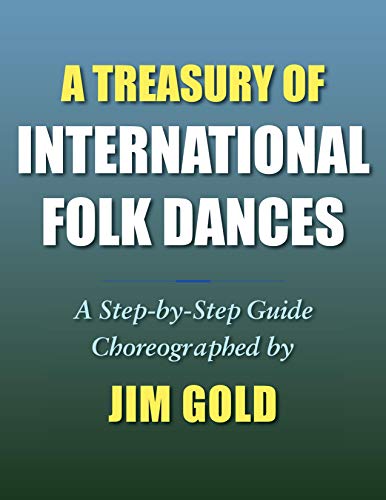Dance of the Week
Pogonishte Kruja
(Music from Albania)
Choreographed by Jim Gold
 Dear Dancers and Travelers,
Dear Dancers and Travelers,
Welcome to our folk dance family!
Pogonishte Kruja is the Dance of the Week.
Music is from Bulgaria.
Click on the links below.
See A Treasury of International Folk Dances
Written instructions: p 149
(or see “Read More” below.)
Pogonishte Kruja danced by Jim Gold
Need a break?
Tickle your mind. Read Where the Wild Mind Dwells by Jim Gold
Then explore our exciting Folk Tours by clicking Folk Tours
All content created by Jim Gold.
More information contact Jim
Blog history: blog archives
POGONISHTE KRUJA. . . ALBANIA
Dance Meaning: Pogonishte from Kruja
Choreography: by Jim Gold in Albanian folk dance style.
Music: The Dirge of Permet, Lyra CD, Laver Barlou clarinet. Editors: Alkis Raftis and Vangelis Roubas
Formation: Open circle, hands W position.
Meter: 4/4
Notes on Pogonishte: by Cees Hillebrand. See bottom of page.
Jim Gold YouTube video: https://www.youtube.com/watch?v=r_hLICgOxYA
Introduction: 12 meas
Measures:
FIRST STEP
Basic Pogonishte step 8x
Moving CCW
1 Lift L (ct 1), step L (ct 2), step R (ct 3), step L (ct 4)
2 Lift R (ct 1), step R (ct 2)
step L behind R (ct 3), step R to rt (ct 4)
3-16 Repeat meas 1-2 8x
SECOND STEP
Sway cross step
1 Lift L (ct 1), step L (ct 2), step R (ct 3), step L (ct 4)
Crossing step:
Moving in to ctr of circle (3 sway cross steps)
2 Step R to rt (ct 1), step L to lft (ct 2), cross R over L (ct 3-4)
3 Step L to lft (ct 1), step R to rt (ct 2), cross L over R (ct 3-4)
4-5 Repeat meas 2-3 1x
Moving our of ctr (6 sway cross steps)
6 Step R to rt (ct 1), step L to lft (ct 2), cross R over L (ct 3-4)
7 Step L to lft (ct 1), step R to rt (ct 2), cross L over R (ct 3-4)
8-11 Repeat meas 6-7 2x
12 Full turn: R (ct 1), L (ct 2), R (ct 3-4)
ORDER OF STEPS:
1. First Step: 8x 2. Second Step: 1x
Notes on Pogonishte
In Albania there is this region which is named Pogon, south of the region of Zagoria, a bit south-east of Gjirokastër, east of Libohova.
Is it often said that the name Pogonishte is the same as the dance Poginisios from Greece. Actually Pogon is a valley between two mountain ranges ( Mali i Buretos on the west and Mali I Nemerçkës on the east side, ranging from north to south) which has the northern part in Albania and the southern part in Greece, down to Delvinaki widening the valley southwards.
The name comes from the region, not from the village of Pogoni as often mentioned. Pogoni is a clustering of villages in Greece of much later date and the actual village Pogoniani was named much later as it was named Vostina before.
But to make it more complicated, all the villages in the Albanian Pogon region have Greek inhabitants, except for one, which is inhabited by Albanians. It is said, that the Greek government decided to establish a Pogoni “city” in order to be able to claim the Albanian territory as belonging to Greece. I do not have an opinion on that, that’s political, and might be just made up for obvious reasons.
Now, the word Pogon in etymological concept. Look at the surrounding regions Zagoria, that’s of Slavic origin as well as Corovoda (Crno Voda, black water) in the more northern region, Poliçan (Po –liçan) and many more examples. Pogon can be found in Polish, Serbian and Slovenian language and is translated as “drive” or “power” or “chase –pursuit”. But no further connection. The Bulgarian book on Slavic names in Albania refers to Zagoria and others, but no mention of Pogon. So, I do not dare to make that connection as a true one. It is not known in Macedonian and Bulgarian language.
Point is, that all the regions with Slavic names in the south is almost all taken by Greek immigrants who worked on the fields. The villages of the Dropulli region have names like Lazarat, Derviçan, Goranxi and Goricë, but all are inhabited by Greek immigrants.
Attached a small map in which I drew the region south to Pogoni.
Best,
Cees Hillebrand

